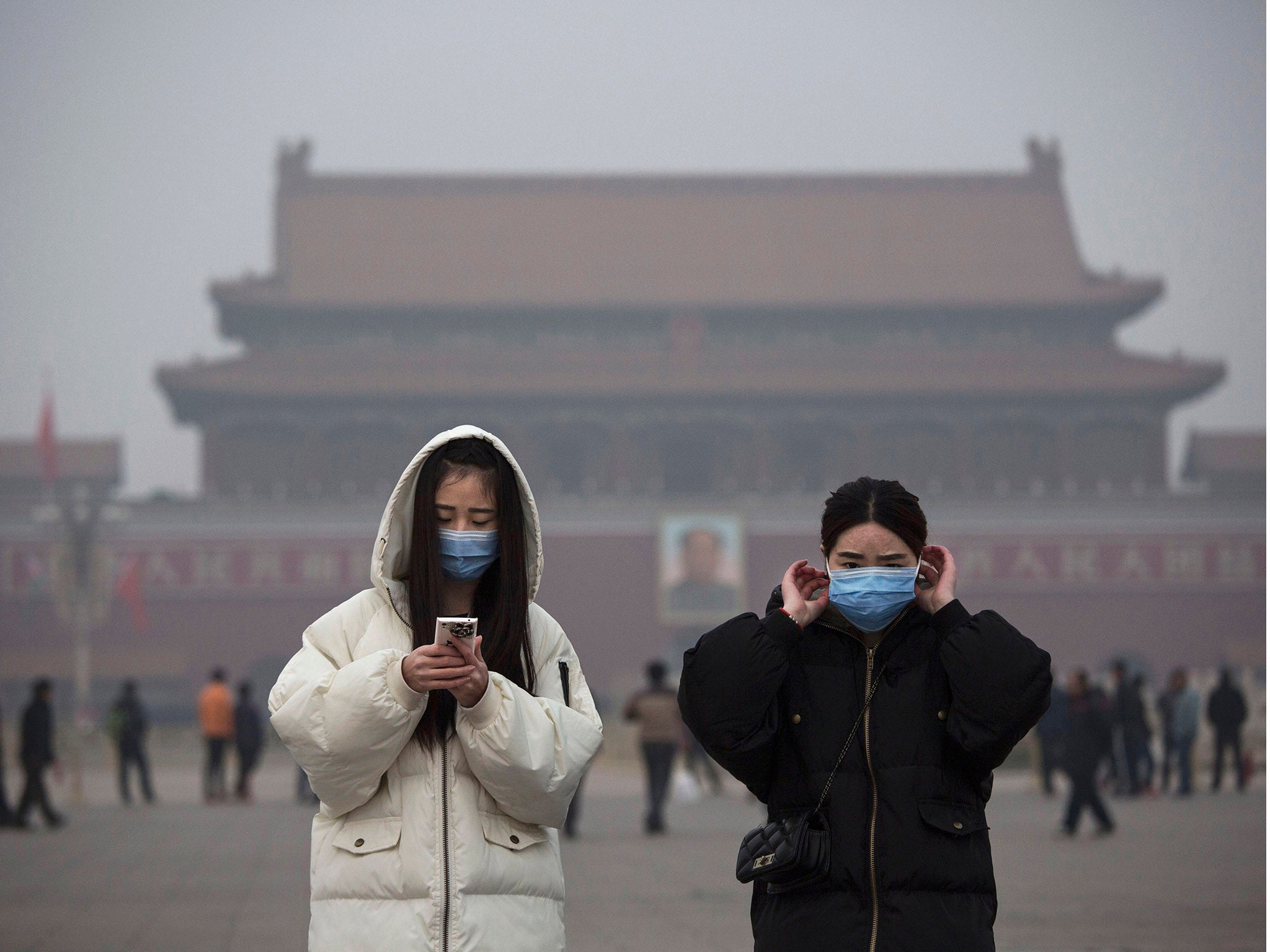China tackles pollution crisis by changing the level of what it says is unsafe in Beijing
The smoggy capital will also double the number of air monitoring stations

Your support helps us to tell the story
From reproductive rights to climate change to Big Tech, The Independent is on the ground when the story is developing. Whether it's investigating the financials of Elon Musk's pro-Trump PAC or producing our latest documentary, 'The A Word', which shines a light on the American women fighting for reproductive rights, we know how important it is to parse out the facts from the messaging.
At such a critical moment in US history, we need reporters on the ground. Your donation allows us to keep sending journalists to speak to both sides of the story.
The Independent is trusted by Americans across the entire political spectrum. And unlike many other quality news outlets, we choose not to lock Americans out of our reporting and analysis with paywalls. We believe quality journalism should be available to everyone, paid for by those who can afford it.
Your support makes all the difference.China has said it will increase the threshold at which it will warn people about air pollution in Beijing.
From March, the highest alert will only be issued when the daily average air quality index is forecast to exceed 500 for a day, 300 for two days in a row or 200 for four days.
At present, a red alert is issued when the AQI is forecast to exceed 200, a level the US deems “very unhealthy”, for at least three days.
China's smoggy capital will almost double the number of air monitoring stations to give a better idea about the true state of the city's air quality.
An extra 30 stations will be added to the 35 already in operation in places like schools, Zhang Dawei, director of the Beijing Municipal Environmental Monitoring Centre, told Xinhua news agency.
Beijing frequently features near the top of the list of China's most polluted cities as emissions from vehicles and heavy industry combine with weather conditions to raise smog levels.
Last month it emerged that a businessman was selling jars of ‘fresh air’ to people in China for £80 each.
Leo De Watts, 27, sells air collected in the British countryside and ships it over to polluted cities Shanghai and Beijing, where the wealthy elite pay a hefty sum for a few seconds of inhalation.
In December, a restaurant started putting a surcharge on top of customers’ food bills as an “air cleaning fee”.
The worst bouts of air pollution tend to coincide with periods of low wind.
"After the upgrade ... we will have more data about the city's air quality," Zhang was quoted as saying.
It did not give a timeframe for when the new stations would come online.
For Beijing and its surroundings, the government has set a target for 2020 of reducing pollution by 40 percent from 2013 levels. A senior environment official said on Friday the city's air quality has improved over the last two years.
The authorities have increased efforts to reduce air pollution in the wake of the city's first "red alerts" in December last year, when hazardous smog engulfed the city.
The average annual PM 2.5 level in Beijing is around 56. That's still far higher than the World Health Organisation's 'healthy' rating of 25.
Of the top 10 most polluted cities in the world, six are in India, with three in Pakistan and one in Iran.
Join our commenting forum
Join thought-provoking conversations, follow other Independent readers and see their replies
Comments